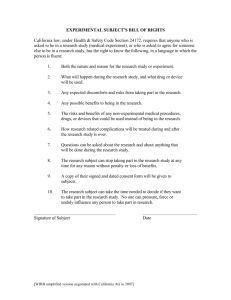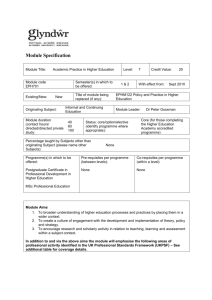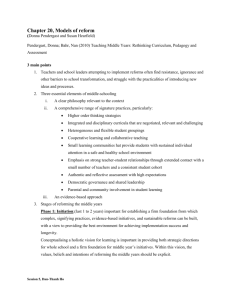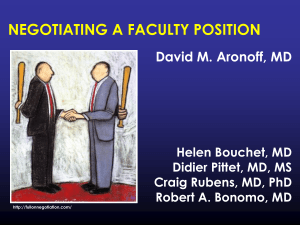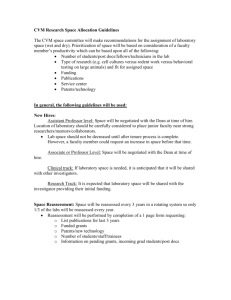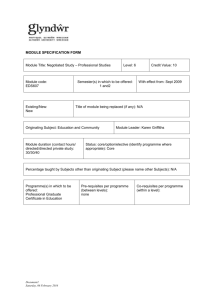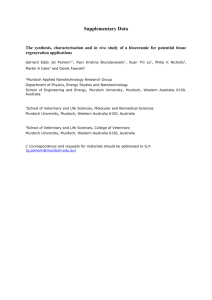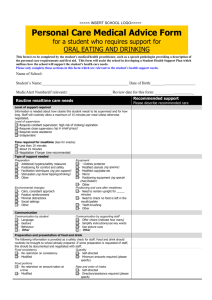Negotiated curriculum1
advertisement
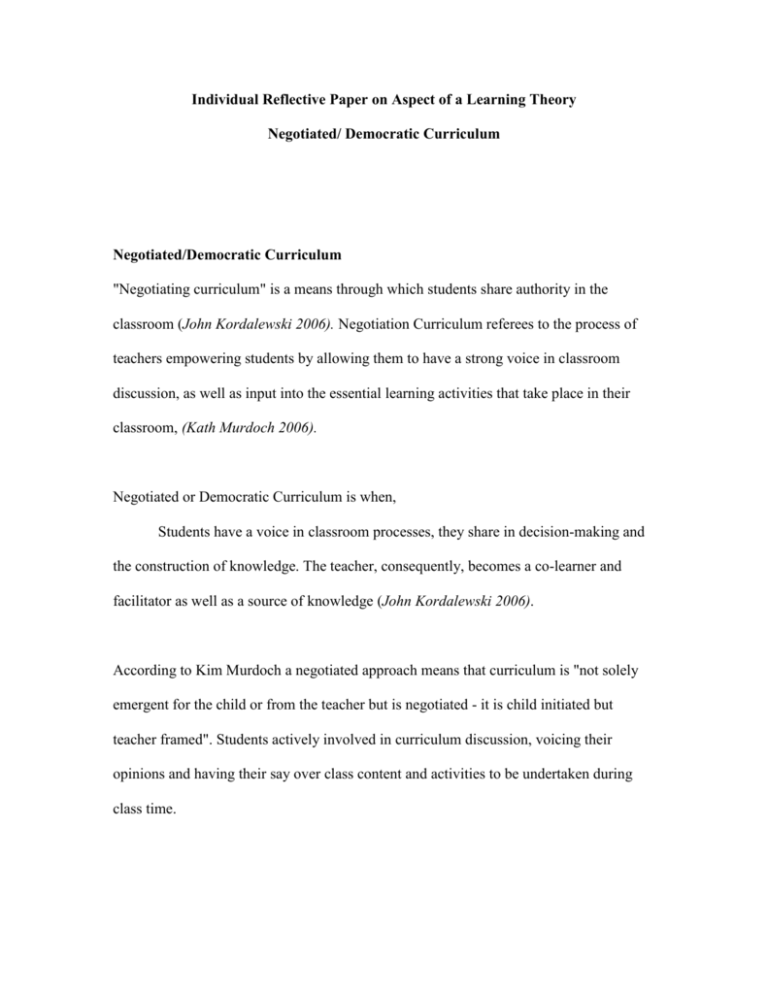
Individual Reflective Paper on Aspect of a Learning Theory Negotiated/ Democratic Curriculum Negotiated/Democratic Curriculum "Negotiating curriculum" is a means through which students share authority in the classroom (John Kordalewski 2006). Negotiation Curriculum referees to the process of teachers empowering students by allowing them to have a strong voice in classroom discussion, as well as input into the essential learning activities that take place in their classroom, (Kath Murdoch 2006). Negotiated or Democratic Curriculum is when, Students have a voice in classroom processes, they share in decision-making and the construction of knowledge. The teacher, consequently, becomes a co-learner and facilitator as well as a source of knowledge (John Kordalewski 2006). According to Kim Murdoch a negotiated approach means that curriculum is "not solely emergent for the child or from the teacher but is negotiated - it is child initiated but teacher framed". Students actively involved in curriculum discussion, voicing their opinions and having their say over class content and activities to be undertaken during class time. James Beane suggests that for students to participating in democratic curriculum they must have the opportunity to choose what they learn within the classroom. “His ideas are based on the ability of students to participate in their own education”(John Kordalewski 2006). Beane believes that teachers have an obligation to help young people seek out a range of ideas and to ‘voice’ their own. Beane believes that imposed standardized curriculums actually ‘deskill’ teachers as they are forced to follow approaches imposed on the school (John Kordalewski 2006). Advantages “Negotiated Curriculum” can be seen to enhance students learning as students have input as to how they will proceed in particular activities. This may entail students choosing topics, planning future activities, as well as selecting sources and media for individual and group projects. When students are involved in the selection of activities and classroom topics for conversations and learning, the students are more engaged in classroom discussion as they are interested in the topic at hand, resulting in enhanced student learning (Kath Murdoch 2006). Potential problems When negotiating curriculum with students, teachers may lose structure in the classroom and have class discussion heading off on a tangent that is not relevant to the topic at hand. Students may also de discouraged when, after having their say, and input, and it being disregarded , or voted against by other students. For Negotiating to be effective the teacher must ensure “classroom structure, routines and record keeping are tightly in place” (Kath Murdoch 2006). Using Jon Cook’s model for negotiating curriculum, Lynne Collidge negotiated with her year 10 class their unit of study surrounding Shakespeare. Lynne describes the unit as a success, Not because each student was intrinsically interested in Shakespeare and valued the opportunity to learn about him and his works, but because students did feel that they had at least some opportunity to have input into the classroom program, and to learn at least one or two things of their own choice. Giving students a choice and degree of control over the classroom teaching and learning program can be seen here to benefit the students as they have input into decision making and control over their own learning. Looking at Jon Cook’s model of negotiation, in which he outlines key questions for students to answer; What do we already know? What do we need to know? How can we find out? How can we show what we have learned? These simplistic questions are used to create students discussion and aid with planning of the curriculum. This empowers students within the classroom, through a carefully guided process which sees students and teachers creating and collaborating in planning activities which are designed for the students to take a greater responsibility for their own learning. (John Kordalewski 2006) Observational Experience of the Theory When on my placement at Parkdale Secondary working with my mentor teacher Ms Kennedy, I witnessed negotiated curriculum being implemented first hand. In our year 9 Physical education class, Ms Kennedy gave the students a chance to influence what they as student were to participate in, for the next sport unit. The only requirement was that it had to be a racquet or bat sport. Ms Kennedy listened to the students suggestions, and involved her self in class discussion. Although this is a very simple example of negotiated curriculum it emphasizes all the key elements required to be categorized as a democratic or negotiated curriculum. Those being; The students participated in decision making. Teacher was an active listener. All Student’s had an equal voice. The selections were chosen by the students, and framed by the teacher. Learning selected by the students. Negotiating the curriculum, such as Ms Kennedy did here, can be seen to facilitate the development of positive partnerships between students and teachers. Teachers and students have equal voices in the classroom and both are recognized. The learning becomes a more transparent process for students because they are very much the engineers of their own learning (Kath Murdoch 2006). Acknowledging the importance of student voice in the classroom means acknowledging students' active role in the learning process. Teaching practices that engage student voices can enhance learning. Negotiated or democratic curriculum can be seen to enhance students engagement in class participation and discussion, as it gives all students a voice in the classroom, which they can use to mold and shape class activities and learning processes to which they participate in. The main feature of this learning theory is that it gives students a voice within the classroom to change curriculum, letting them have a say and be excited about class topics and activities, leading to this theory being appropriately named Democratic curriculum theory. Reference Murdoch, Kath 2006, Negotiating the curriculum with students: a conversation worth having John Kordalewski 2006, Incorporating Student Voice into Teaching Practice. ERIC Digest. Lynne Collidge, Negotiating the Curriculum - STELLA - Standards for Teachers of English Language and Literacy in Australia © 2002 AATE Onore, & Jon Cook. Negotiating the curriculum: Educating for the twenty-first century. London: Falmer Press.
